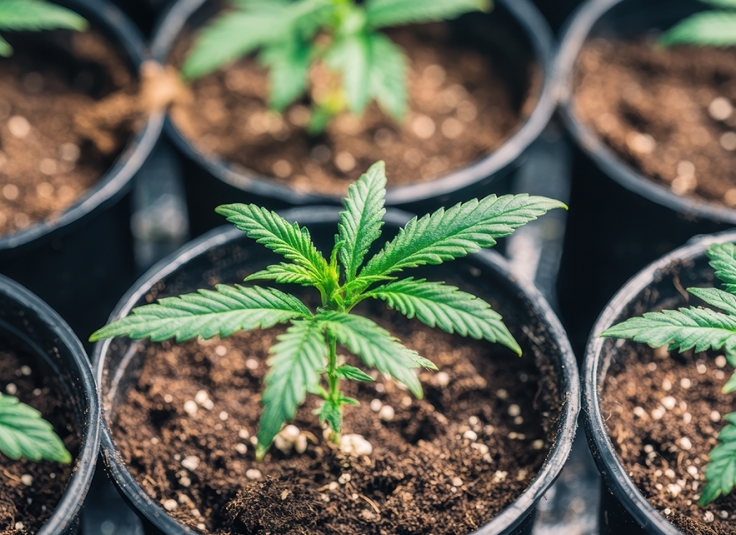A bold initiative petition in Massachusetts could shut down the state’s thriving adult-use cannabis industry, wiping out a $1.6 billion market and sparking heated debates. As supporters gear up to collect signatures for the 2026 ballot, many wonder if voters will reverse the legalization they approved years ago. This story topped cannabis news in September, but what’s really at stake?
Petition Aims to Repeal Cannabis Legalization
Massachusetts Attorney General Andrea Joy Campbell certified an initiative petition that seeks to end licensed adult-use cannabis cultivation and sales. The move could dismantle a market generating $1.6 billion in annual sales, according to recent industry reports. Filed by a group of citizens, the petition targets the 2016 law that legalized recreational marijuana for adults.
This isn’t just about policy. If it makes the 2026 ballot, voters would decide whether to roll back a system that’s been in place for nearly a decade. Supporters argue it’s needed to address public health concerns, while opponents say it would boost illegal sales and hurt jobs.
The certification happened on September 3, 2025, giving backers a tight window to gather thousands of signatures. They need at least 75,000 valid ones by December to qualify. That’s a big hurdle, but the effort has already grabbed headlines.

Why Supporters Want to Kill the Market
Backers of the petition point to rising concerns over youth access and health risks. They claim the adult-use market has led to more hospitalizations from cannabis exposure, especially among kids. A recent report from a Massachusetts company highlighted how hemp products are driving up pediatric cases, fueling calls for repeal.
One key argument is economic. While the industry boasts $1.6 billion in sales, critics say the social costs outweigh the benefits. Think increased emergency room visits and potential links to mental health issues.
But not everyone agrees. Legalization supporters note that regulated sales have cut down on black market activity. Data from the Cannabis Control Commission shows over $5 billion in total sales since 2018, with taxes funding schools and communities.
- Youth cannabis use has not spiked dramatically post-legalization, per state health surveys.
- Tax revenue hit $200 million last year alone.
- Job creation stands at around 20,000 positions in cultivation and retail.
This divide shows how the petition taps into ongoing debates about drug policy.
Timeline and Next Steps for the Ballot Push
The push to end adult-use cannabis in Massachusetts kicked off with the attorney general’s approval in early September 2025. Now, organizers must hustle to collect signatures across the state. If successful, the question could appear on the November 2026 ballot.
Voters first approved legalization in 2016 by a 54% margin. Sales began in 2018, making Massachusetts one of the early adopters in the Northeast. Fast forward to today, and the market has grown into a powerhouse, with hundreds of dispensaries operating legally.
What happens if it passes? Licensed operations would shut down, but medical cannabis would remain intact. That means patients could still access it, but recreational users would face a return to prohibition.
Organizers have until early December 2025 to submit signatures. Then, the secretary of state verifies them. It’s a process that has derailed many petitions before.
Impact on Businesses and Consumers
Business owners are worried. Dispensary operators say a repeal would kill jobs and send customers back to unregulated dealers. One industry group estimates that closing the market could lead to 15,000 lost jobs overnight.
Consumers might feel the pinch too. Legal weed has meant safer products with tested potency. Without it, people could turn to riskier sources, potentially increasing harm.
On the flip side, some communities welcome the idea. Towns that opted out of cannabis sales argue it has strained local resources. A 2024 study by the Massachusetts Municipal Association found higher policing costs in areas with dispensaries.
| Aspect | Current Status | Potential Change if Repealed |
|---|---|---|
| Market Size | $1.6 billion annually | Complete shutdown |
| Jobs | About 20,000 | Massive layoffs |
| Tax Revenue | $200 million yearly | Lost funding for public services |
| Youth Access | Regulated with age limits | Possible rise in black market exposure |
This table highlights the stakes. The petition isn’t just a policy tweak; it could reshape the state’s economy.
Broader Context in National Cannabis Trends
Massachusetts isn’t alone in rethinking cannabis laws. Nearby states like New York and New Jersey have expanded their markets, drawing customers across borders. Pennsylvania’s governor recently noted that up to 60% of sales in neighboring states come from his residents, pushing for local legalization.
Nationally, federal efforts to deschedule marijuana are underway, but bills to block changes also exist. In Massachusetts, this petition contrasts with past votes, like the 2024 rejection of psychedelic legalization.
Experts say public opinion still favors legal weed. A 2025 poll by the University of Massachusetts showed 62% support for keeping the adult-use market. That could make the repeal a tough sell.
The initiative reflects a pushback against rapid changes in drug policy. As more states legalize, others grapple with unintended effects, like market oversaturation.
This Massachusetts petition has ignited fierce discussions, potentially erasing a booming $1.6 billion cannabis industry and forcing voters to revisit a decision made nearly a decade ago. It raises big questions about balancing economic gains with health concerns, and whether prohibition’s return could solve or worsen problems. As the signature drive ramps up, the outcome might influence cannabis policies nationwide, reminding us that no reform is set in stone.
Maria Garcia is an award-winning author who excels in creating engaging cannabis-centric articles that captivate audiences. Her versatile writing style allows her to cover a wide range of topics within the cannabis space, from advocacy and social justice to product reviews and lifestyle features. Maria’s dedication to promoting education and awareness about cannabis shines through in her thoughtfully curated content that resonates with both seasoned enthusiasts and newcomers alike.








